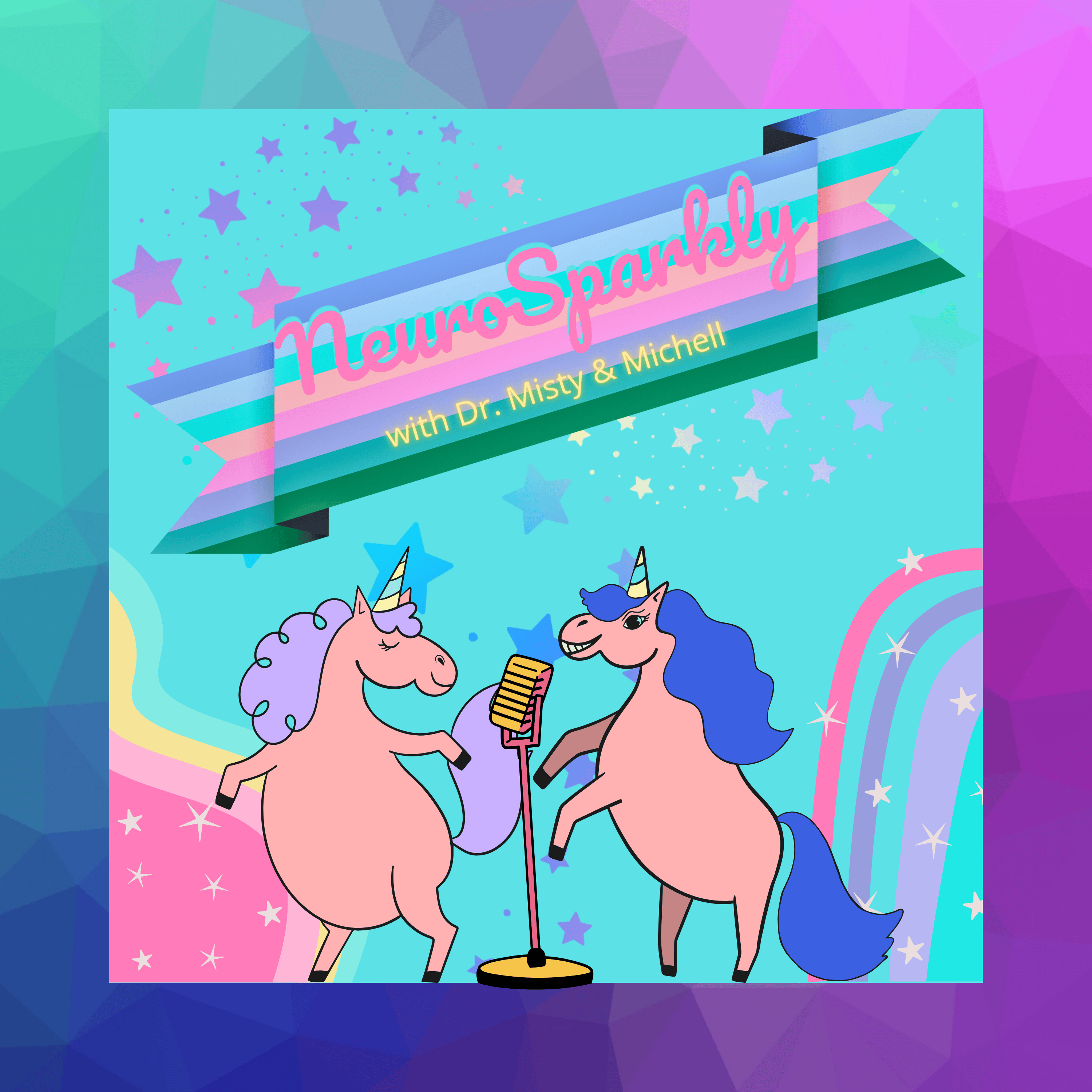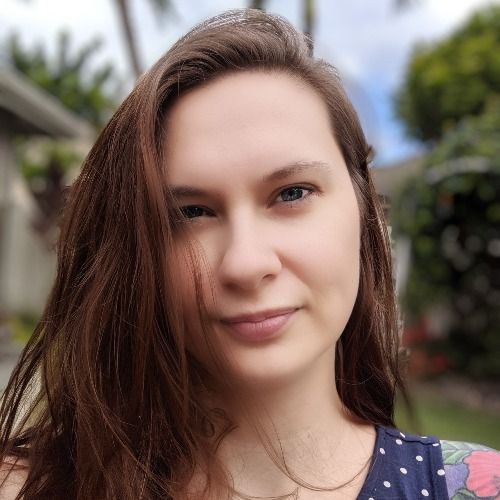Episode 2
Ep. 2: The Nesting Dolls of Neurodivergence
Join Dr. Misty and Michell on NeuroSparkly as they dive into the complexities of unmasking as neurodivergent and queer individuals. They share personal experiences, discuss the significance of recognizing and peeling back the layers of masks we've worn, and offer practical tips for self-acceptance, finding safe spaces, and checking in with your body. From the quirky challenges to the profound realizations, this episode uncovers the journey of becoming your authentic self. Plus, they touch on the importance of community and the varied growth levels within it. Remember to keep it sparkly!
Transcript
It was, like, maybe three years, maybe not even three years ago quite yet. So I'm still quite in the process of learning what's authentic to me, I think. And, you know, like, part of it is just dissecting my perspective throughout different areas of my life, where I've realized that I can see it from this different perspective or this different lens now that I know this about myself, where before I would go through situations with people or, like, interpersonal relationships, where it was like, why. Why did that go so poorly? Or, like, why was I taken advantage of in those situations and not realize it? But now I can clearly see it from this. This new led. So I think, like. Like, as I'm figuring that out, I think the big thing for me is just feeling really safe with certain people, that I can start to explore my more, like, authentic self and try that out with people that I know that I'm safe with. So I don't have the, like, shame spiral that can happen if you. You know, if you show yourself right in a different context, like, in a situation where you're not very safe or very close with a person, and then you get the weird look, right?
[: [: [:I think that could be a good place to start. Cause sometimes I feel like it's hard to even know, like, do I feel safe here? Do I feel safe? Do I feel safe anywhere, you know?
[: [: [: [: [: [: [: [:And on the Myers Briggs test, like, every time I'd have to take it, it would always be different. And so people felt, like, very weird about that. But I was always confused because it was like, well, in the workplace, I follow these set of rules, but then in my real life or in these groups, I feel comfortable with, I'm like this. And I think everyone kind of does that to a certain extent. But for me, it was very, um, exaggerated, I guess. Um, and so I think.
[: [:That's how I was kind of feeling, like I was having a good time, you know? And then I realized, like, well, I'm putting on this Matthew really crazy grin mask because I want my friends who are standing next to me to think that I'm having a good time because they brought me there, they wanted to show me this thing.
Even though, you know, for me personally, I was like, oh, this is a cool experience. Is really fun, but it's not. I'm not having the greatest day of my life, you know? And so it was really interesting because I. Yeah, I tried in that moment to, like, have a neutral face, and it was really, really hard, but I did it. I was like, okay, this is how I'm feeling. And that was one of the first times where I noticed, like, I have a mask on and I can take it off and it feels weird.
[: [: [: [: [:Intersectionality in general goes, you know, if you have an intersectional identity as well as being neurodivergent and that becomes extra complicated to remove masks or, you know, just the layers of masks that are on your face due to your intersectionality become thicker and thicker and thicker.
[: [: [: [:They were at one point involved in a church or some type of community like that, and then they've removed themselves from it. And sometimes they remove themselves from it for a reason that they don't even know, really, to themselves. Quite. At that point, they just know this doesn't feel like. Like something that I want to be a part of anymore. And then later on, as they start to realize more about them, their own selves, being, like, neurodivergent, then they start to realize, oh, okay, so I had a whole mask on, not only around my neurodivergency, but also around, like, being part of this religion and, like, meeting that expectation and the community around the religion and meeting that expectation, and then maybe the family, if the family is also involved in their religion, then meeting that alone becomes quite a big, like, intersectional group of masks. Right there is leaving a religion.
[:Well, and I think that. I don't know if you've experienced this, but I think it gets more common once you start realizing all these masks that you've worn or felt like you've had to wear, and then you start taking them off. Your tolerance for, like, dealing with people, you know, that want you, you know, to be that person that you were before.
[: [: [: [: [: [: [:Yeah, yeah, yeah. If you look at each individual emotion, they have their own masks just for everyone. And then put the layer of neurodivergence on it, and it's like, and then if you don't know how to respond with certain emotions or if you have a response that doesn't look like it meets the emotion, you know, that happens a lot. Cultural aspects. And just with neurodivergence where, like, people smile sometimes when they're telling a horrible story or something like that, and then people think that they're not, like, really traumatized by that story, but that's just their response is to smile whenever they're uncomfortable or something.
[: [: [:Yeah, well, and there's. Yeah, there's so many layers to that. And I think just if you think about, okay, so you're wearing all these masks. Some might be concrete. They're, you know, they're suffocating sometimes just the day to day of that they can be really stressful. And so that could be a good chance to. To talk about, like, checking in with your body again, like, how stressed out am I when I'm either wearing the mask or not? Is the mask helpful when I wear it?
[: [: [: [: [: [: [: [:And that burnout from neurodivergency can take a long time to come back from.
[: [: [: [: [: [:But do you have any tips, misty, for some strategies to kind of work on that self acceptance of maybe? Now I'm recognizing that I'm neurodivergents, and how can I care for myself in that way?
[: [: [: [: [: [:Awesome. I think another thing that we'll do another episode on is just communication and boundary setting, which I think is especially important when you're neurodivergent, especially when you're neurodivergent and queer and all the intersectionalities that come with, you know, all those different populations.
And as a reminder, this podcast is only for fun. This should be only taken for educational purposes only. Remember, we are not your therapist. We are therapists. But please talk to your own therapist and look at our website for some mental health resources. Check out flowartlearning.com.
[: [:And remember, keep it sparkly. Bye.





